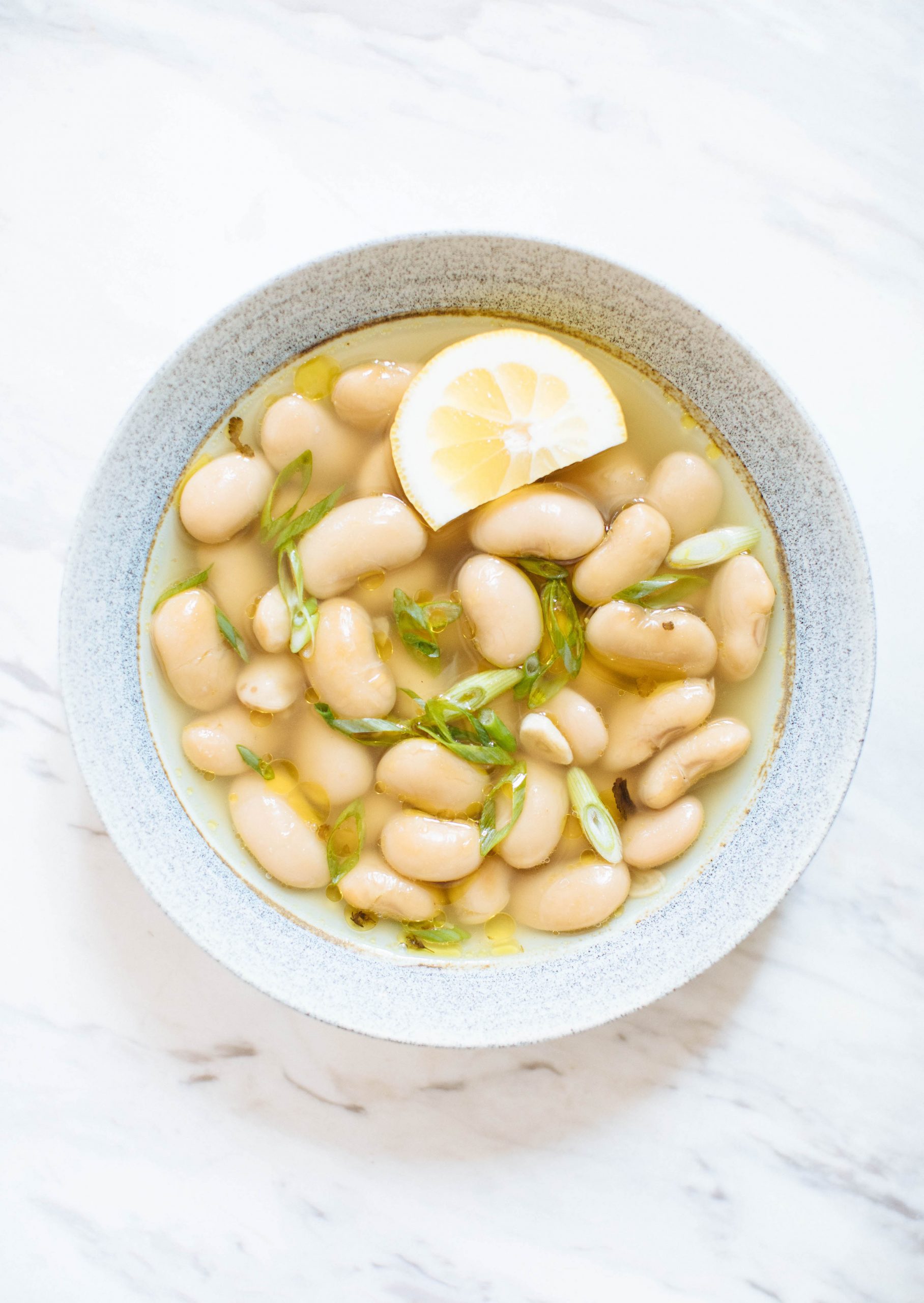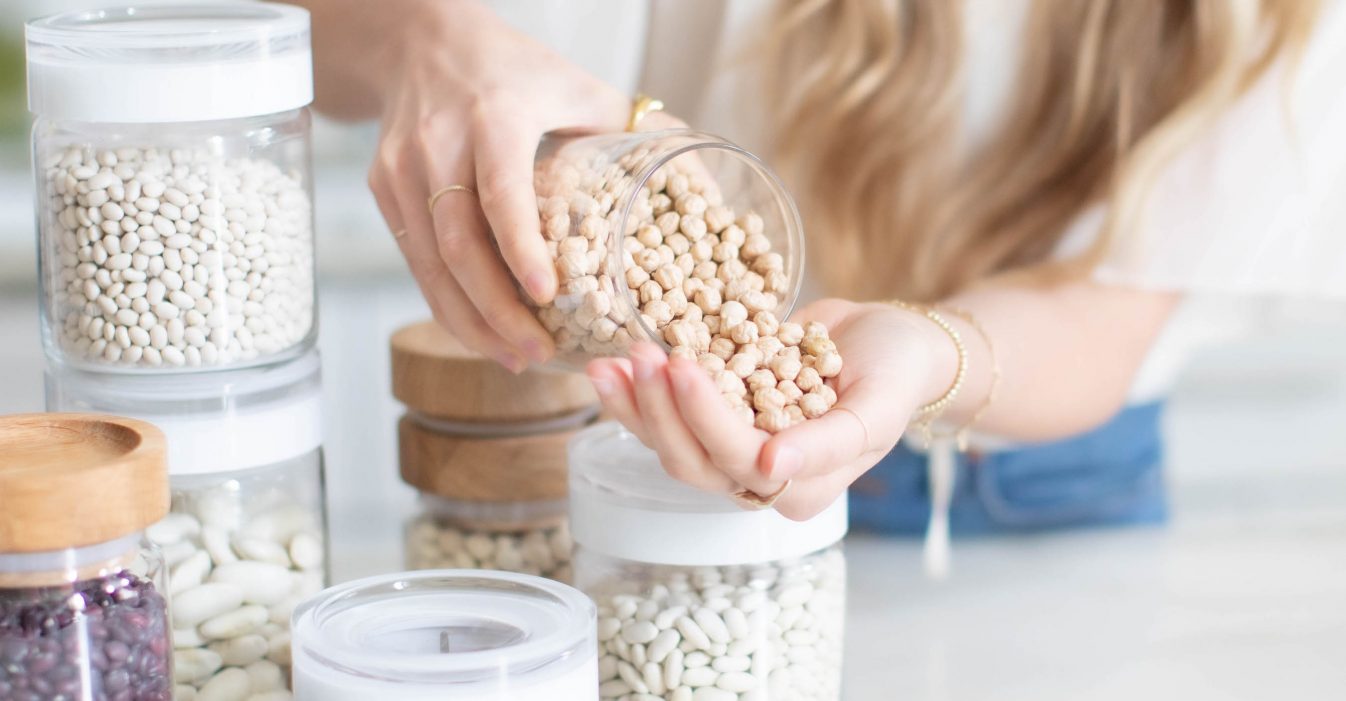Do you need to improve your digestion? If you’re experiencing trouble digesting, like bloating, constipation, abdominal cramping, gas, or diarrhea on the regular, then those are a few signs your digestion could use a little support.
Your digestive system is exceptionally important for your overall health. It’s responsible for processing the food you eat, absorbing the nutrients you need then excreting the waste that no longer serves a purpose.
Unfortunately, many people are experiencing daily signs of discomfort due to disrupted digestive systems.
Discomfort as a result of poor digestion can cause frustration and confusion. It can sometimes even become such a nuisance that it can begin to impact your daily life.
Sometimes digestion complications can be the result of more serious conditions such as Irritable Bowel Syndrome, Crohn’s Disease, Diverticulitis, and more. Yet an otherwise perfectly healthy person can often experience digestive issues simply due to poor diet or lifestyle choices.
In this article, you’ll learn some of the causes of digestion problems, how the digestion process works, and what you can do to improve digestion.
What Causes or Contributes to Poor Digestion?
When it comes to poor digestion, there are quite a few possible culprits that may be to blame. Poor digestion is really common if you’re not eating the right combinations of foods or you don’t know how to prepare those foods in a way that aids digestion.
Contrary to popular belief, it’s not just about what you are eating, but also how you are eating and how you are feeling.
Let’s dive into what those diet and lifestyle choices may be.
Inappropriate Fiber Intake
Almighty fiber, the king of digestion.
Insoluble fiber is responsible for aiding GI motility; it essentially helps to keep things moving in a timely manner. Soluble fiber, on the other hand, turns into a gel-like substance in the digestive tract to help slow down digestion.
It also promotes the growth of healthy bacteria that helps us to digest appropriately. When we don’t have enough fiber in the diet, we can experience constipation, gas, or diarrhea.
On the other hand, what many people don’t know is that if we suddenly increase our fiber intake substantially overnight, this can also be just as troublesome. Constipation and bloating almost undoubtedly will follow.
Inadequate Water Intake
Water is another key player for healthy digestion. When we’re either mildly or severely dehydrated due to a lack of water intake, symptoms of constipation, diarrhea, bloating and even malabsorption may occur.
Water helps break down food items to promote optimal digestion, and also softens the stool.
Excessive Intake Of Processed Foods
When too many processed food items are consumed frequently, a perfect storm is created in the digestive tract.
Processed food items are void of fiber, water, vitamins, and minerals, yet packed with sugar and artificial ingredients.
Our digestive tract is lined with “good”, healthy bacteria that help us to digest appropriately. Unfortunately, an excessive intake of sugar from processed food items can lead to an inadequate amount of healthy bacteria, which ultimately results in poor digestion.
Acute And Chronic Stress
Stress has the ability to wreak havoc on the body.
Acute stress is essentially short-term stress, think of that pit in your stomach you feel when you’re nervous about meeting a work deadline or about giving a speech in public.
Chronic stress, on the other hand, is long-term stress. This is the stress that is experienced over a prolonged period of time rather than simply situationally.
Acute stress can cause a lack of appetite and slow down digestion, while chronic stress can cause more severe issues such as constipation, diarrhea, and abdominal cramping. This can also eventually result in a diagnosis of Irritable Bowel Syndrome.

Sedentary Lifestyle
Movement is key for optimal digestion.
Our digestive tract is one big muscle. When we’re sedentary and not exercising, that muscle often isn’t as stimulated to push our food through the various stages of digestion.
This can result in constipation, gas, and even bloating.
Not Eating The Right Balance Of Foods At Each Meal
Our bodies require a combination of what we like to call the Foundational Five — protein, starchy carbohydrates, non-starchy carbohydrates, healthy fats, and the flavor factor.
While the flavor factor is simply for taste, the previous four components are essential for proper digestion. Each macronutrient serves a purpose, when one or many of them are consistently missing, your digestion may start to show signs of distress.
Overeating Or Under Eating
Finding the right amount of food for your body is also important for proper digestion.
If we under eat and don’t give our body the proper nutrients it needs, we may start to experience, bloating, constipation, or diarrhea.
The exact same goes for the opposite scenario. If we overload our digestive system to the point where it becomes overwhelming, the chances of it being able to digest appropriately are slim to none.
Food Intolerances
Food intolerances present themselves differently in each and every individual. With that being said, abnormal digestion is one of the most common signs.
Continuing to eat food items that your body is intolerant to can also lead to long term complications, depending upon the severity of the intolerance and what it is that you are intolerant to.
What You Need to Know About the Digestion Process
It’s important to understand the basics of the digestion process in order to appropriately address digestive issues.
Digestion is the act of consuming, breaking down, processing, and utilizing food for energy. There are two ways food is digested: mechanical digestion (when food is chewed and physically broken up into tiny little pieces) and chemical digestion (where food is broken down into even smaller molecules with the help of natural digestive enzymes).
The process of digestion starts in the mouth. Mechanical digestion is conducted by the act of chewing food. Chemical digestion also begins here with the release of the enzyme amylase, which is responsible for digesting carbohydrates.
Our food next travels through the esophagus to the stomach where chemical and physical digestion continues. Gastric juices are released to further break down the food item, while the stomach itself contracts and churns to mix everything up and push the food forward. These contractions are referred to as peristalsis.
Everything then makes its way into the small intestine. This is the first part of digestion where nutrients begin to be significantly absorbed. The liver and pancreas also help out here by secreting enzymes that further the chemical digestion.
Lastly, after the food has passed through the small intestine, the large intestine absorbs all remaining nutrients but mostly any remaining water. This is how stool is formed that then passes out of our bodies via the rectum.
How You Can Aid Your Digestion
Now that we understand how the process of digestion works and how it can be disrupted, let’s dive into some ways you can improve your digestion.
A lot of the members of the Method Membership have digestion problems when they first join, but through learning what to eat, how to optimize digestion (especially when eating plant-based foods), and how to tune into the signs their body is sending them, they’re able to make changes that work specifically for them.
When we work on digestion inside of the Method Membership, it’s a process with small changes that add up and shift things overtime.
These tips below are a good starting point, but keep in mind that learning how to support your own unique digestion is a process and it will take some time to fully figure out what works for you.
Eat Enough Fiber
It’s recommended that men and women receive about 25-30 grams of fiber per day. You can get fiber in your diet from whole foods such as beans, legumes, nuts, seeds, whole grains, fruits, and vegetables.
If you’re not used to consuming these fibrous food items daily, take it slowly. Add in a small amount of these items daily and work your way up. You don’t want to overload your digestive system.
Additionally, if you find that you’re specifically having trouble with beans or legumes, feel free to soak these before preparing them to aid digestion even more.
Eat Foods That Improve Digestion
There are several foods that can support digestion for different reasons! If you’re finding yourself having trouble digesting, try incorporating some of these fruits for digestion and vegetables for digestion into your week and noticing if they help aid digestion.
You can also add some apple cider vinegar to your meals, dressings and marinades to help improve digestion as well. Apple cider vinegar contains acetic acid, which has been shown to help aid digestion in those lacking stomach acid. This may be particularly beneficial for those struggling with acid reflux. While additional research still needs to be conducted, there is preliminary evidence that apple cider vinegar may help improve acid reflux.
Drink Plenty of Water
As a general rule of thumb, aiming to consume about half of your body weight in fluid ounces per day is a good place to start.
Depending on the amount of physical activity you are participating in, you may need a bit more or less than this number. Always know that you can consult a registered dietitian to determine your individual fluid needs.
Reduce Processed Foods
Processed foods should play a very small role in your diet to promote optimal digestion.
Opt for whole foods that are naturally packed with fiber, vitamins, and minerals as much as you can. From whole-grain varieties to lean protein, nut butter, seeds, fruits, and vegetables, there are so many options out there for you to incorporate.
Practice Stress Management for Better Digestion
Finding a stress management routine that works for you can do wonders for not only your digestive health but also your mental and physical health.
Stress management activities can be anything that works for you – from face masks to bubble baths, exercise, socialization, or reading, the options are endless.
If you find that you’re struggling to create a routine like this on your own, know that you can always reach out to a wellness coach or a mental health counselor to help you cope with stress.
Movement Aids Digestion
Movement can be an exercise class you take, a walk around your neighborhood, a yoga flow at home, or a bike ride with friends.
Any movement is good movement!
Eat Balanced Meals to Ease Digestion
Whenever your preparing or purchasing a meal, aim to get a combination of protein, healthy fat, starchy carbohydrates, non-starchy carbohydrates, and a flavor factor.
This will help to keep you feeling full after meals, energized for your day, and will improve your digestion.
 Eat The Right Amount For Your Body
Eat The Right Amount For Your Body
Learning to understand your hunger and satiety cues can be exceptionally helpful with this. The more mindful you are with your eating, the better you can nourish your body and nurture your digestion.
Registered dietitians can also be a great help with this. Sometimes acclimating yourself to your hunger and satiety cues just isn’t as easy as it sounds. Dietitians can help you to do this in a healthy, realistic way.
Identify Food Intolerances
If you find that your digestion is only disrupted after certain meals or when you eat specific food items, food intolerance may be to blame.
A great way to determine whether or not you have a food intolerance is to use a food journal. This will allow you to track your signs and symptoms in accordance with your intake.
Over time you’ll be able to find patterns. Once established, you can perform an elimination diet to determine the root cause of your digestion issues.
Add Digestive Enzymes
If all else fails, digestive enzymes in the form of a supplement can be quite helpful. For example, many can’t digest beans and legumes very well and there are many supplements on the market that help break down the polysaccharides in legumes that can be difficult to digest. There are also some foods that contain natural digestive enzymes that are more “powerful” than most other whole foods like pineapple and papaya.
You don’t necessarily need to take digestive enzymes to optimize digestion. But in some cases, they can help alleviate gas and bloating. Always check with your doctor before taking a new supplement. It might interact with other medications or not be right for your body.
How to Put This Into Practice to Improve Your Digestion
Now that you have some ideas to get you started, focus on one tip that you think will make the biggest impact for improving your digestion.
Testing one thing at a time will help you see what works best for you and give you time to try it out in your life.
If you’re also looking to improve your eating habits to support your digestion, download the free guide for creating healthy eating habits. It walks you through the steps and practices you need to create healthy eating habits in your daily life that help you feel your best every day.
How to Know if Your Digestive Issues Are Serious
It’s always important to touch base with your health care practitioners to rule out any serious digestion complications or conditions, especially if you’re experiencing digestive issues on a daily basis.
Be sure to seek out your primary care physician for guidance. They’ll be able to properly diagnose and treat you if a serious condition is present.









